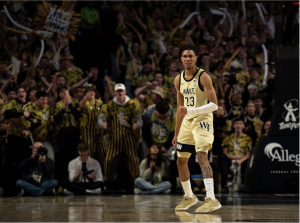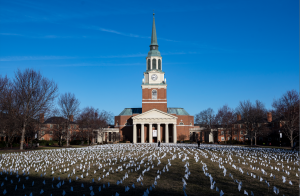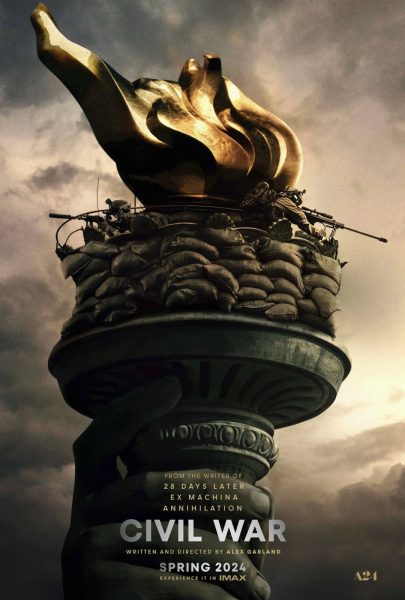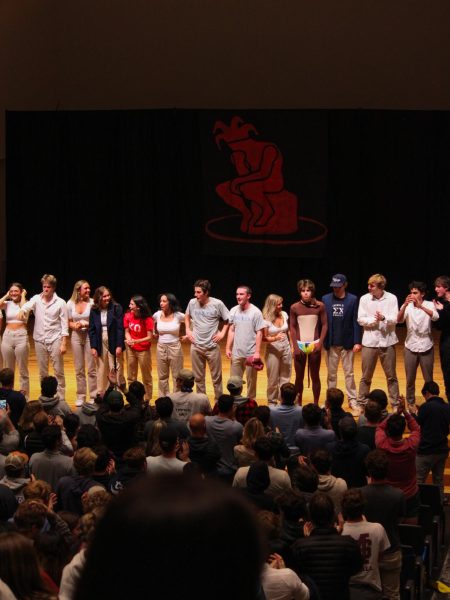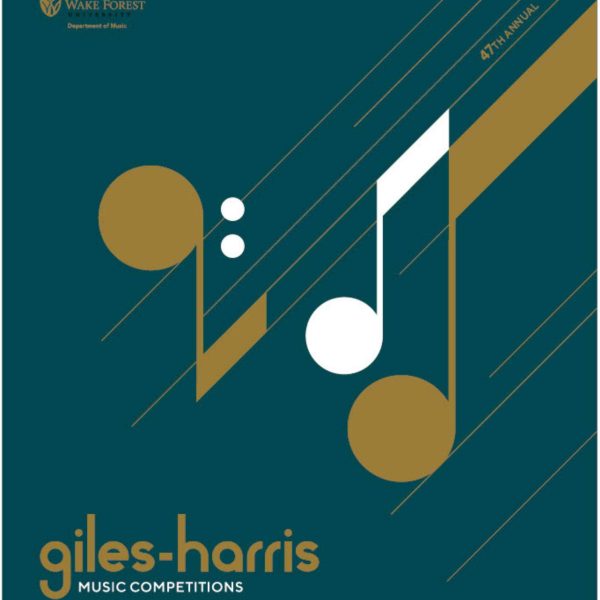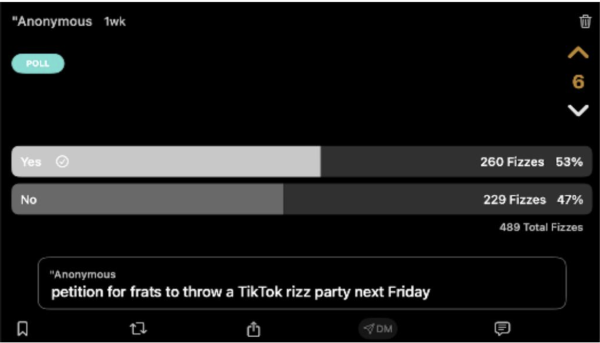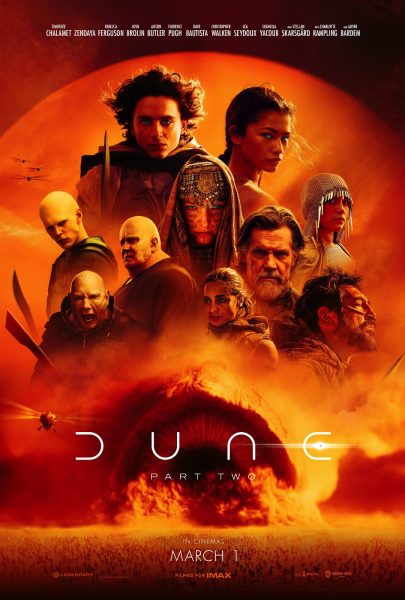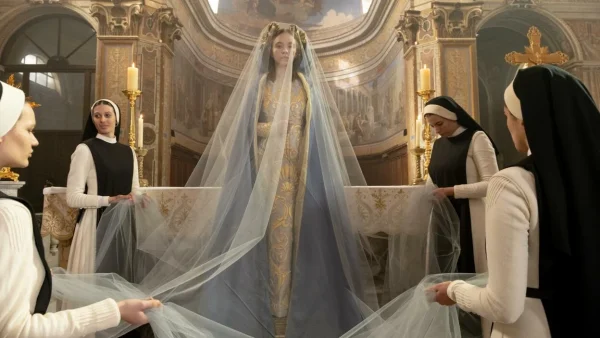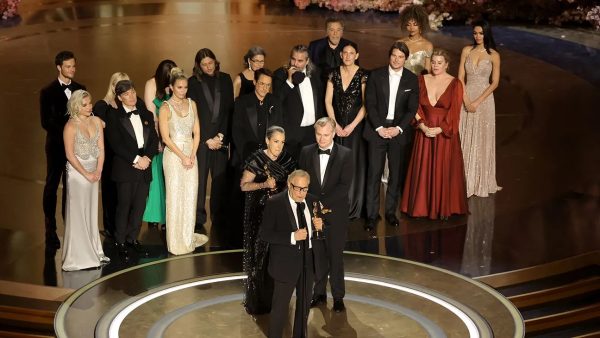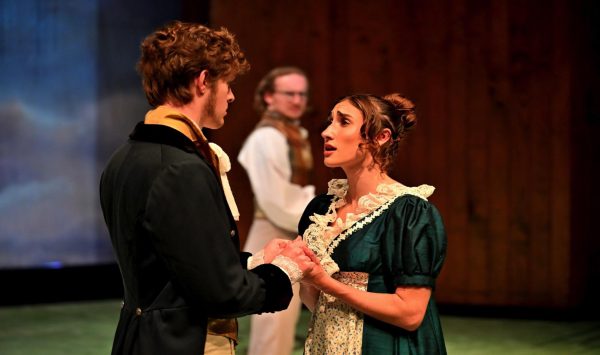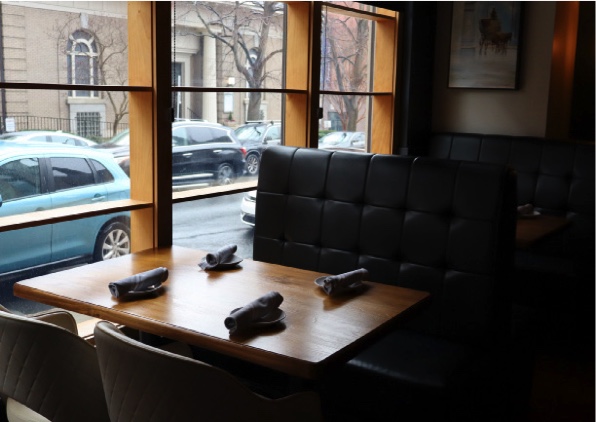Student reminisces experiencing live music
The pandemic has changed most every aspect of our lives, but with the introduction of vaccines, a little normalcy may be found through live music and concerts
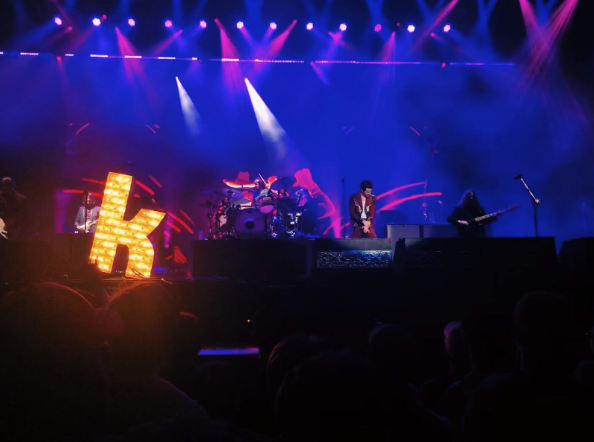
Nothing compares to the electric atmosphere of a live concert and the energy exuded by the masses of audience members cheering and singing along.
April 15, 2021
It’s a cool summer evening in the year 2019. You’re at an outdoor venue wearing your favorite music tee, surrounded by friends and packed tightly next to strangers. The floor beneath you feels sticky with soda and beer and a few empty cans are scattered by your feet. You paid good money to be stuck behind crowds of people all clamoring to be close to the front stage. People are chatting loudly all around you while background music plays from the giant monitors. You see hundreds more behind you gathered to enjoy the same artist, all consumed with the same level of energy and joy.
Then, a sudden hush of silence sweeps through the crowd as the lights dim and everyone lowers their voices. Sounds of cheering gradually pick up as people recognize what is about to happen. It’s time for the show to begin. You turn to your friend and flash a giddy smile. A single guitar begins playing a familiar riff as the crowd goes wild. Bright lights appear over the musicians’ silhouettes. The frontman shouts, “Hello Winston-Salem! How are we doin’ tonight?” Everyone continues to scream as the band begins to blast their set to hundreds of people. You feel happy. You feel nostalgic. You feel normal.
Fast forward about a year when live music came to a screeching halt in March of 2020. As the COVID-19 virus spread like wildfire across the world, face-to-face interactions like dining, parties, shopping and, of course, concerts, ceased for months. The world was quiet, isolated and filled with hopelessness for almost an entire year. No large gatherings. No maskless interactions. No traveling. No seeing family or friend
Until recently. Depending on the location, some public spaces and in-person experiences are beginning to open up. The world once recognized as normal has turned into a parallel reality filled with COVID-19-adaptations.
However, concerts seem to be last on the list of activities that can be made “COVID- friendly.” After all, most concerts involve hundreds of people crammed together yelling, jumping, singing and breathing a lot of shared air.
Now that the vaccine is being distributed to millions of people, the world has hope for “going back to normal.” Although masks and social distancing are still required, restaurants, stores, parks, stadiums and other public spaces are increasing their capacities seemingly by the day.
Well, what about concerts? How are mass gatherings of individuals crowded together whilst sharing sweat and air going to return? So far, there is a lot of hope. Artists began returning to the performance scene by live streaming mini-concerts on social media platforms to provide fans with a hint of normalcy. Yet, many have complained about virtual school and virtual meetings saying “it is just not the same as the real thing.” Similarly, virtual concerts make me miss live music — and the experiences that come with it even more.
As someone who regularly attends concerts with my family, it made me sad to watch my favorite band, The Killers, perform their new song on Instagram Live. My family and I were supposed to see their show in Ireland in June of 2020 but it was postponed, just like thousands of other live performances. My family and I attempted to feel the nostalgia of concerts by rewatching YouTube videos of live music, but once again ended up feeling discouraged and pessimistic.
As public spaces began to open, small artists took advantage of the improvement by booking gigs at restaurants and bars both inside and outside while still following COVID-19 guidelines. Unfortunately, while the artists play their sets, viewers must remain seated and are prohibited from dancing. Now, what kind of live music is that? One of my favorite things about attending concerts is jumping around, dancing and getting as close to the stage as possible. Once again, close but no cigar in an attempt to make live music “normal.”
Artists have even tried “cruise-in” concerts that allow fans to drive their cars to a drive-in theater or even a speedway to attend a show. For example, in North Carolina, the Orange County Speedway and the Eden Drive-In Theater have both held small concerts. However, this setup still limits capacity and dilutes the true concert experience. Does this mean there is no hope for a return to a normal concert life?
In the short term, it’s complicated. Now that the vaccine is being rolled out to millions of people all over the world, artists and venues have been rescheduling previously canceled shows. But there’s still a catch. Both indoor and outdoor spaces have limited capacities, and they vary upon location.
In the U.S., laws vary from state to state, making it difficult for small artists to schedule tours. Even more difficult is the process of booking tours for big artists across several countries that all have different restrictions. Not to mention making sure people willingly receive the vaccine. Some experts — such as Dr. Anthony Fauci — say concerts will return in Fall 2021.
Others say not until 2022 will we have a true return to normalcy because the live music business truly must “go big or go home.” For instance, concerts held at a decreased capacity lessen revenue for both performers and venues, causing many to await the allowance of full capacity.
There is no definitive answer as to when all live music will be back in full swing. Some music festivals and solo performers have rescheduled their performances, but like everything else amidst the pandemic, we have to take it one day at a time.
The best possible outcome is for some concerts to “test the waters” in late spring and early summer with a limited capacity of vaccinated individuals. If those events are successful in keeping people safe, then the live music business and the lawmakers can reevaluate the situation and plan for the future. Until then, encourage yourself and others to be safe, get vaccinated, listen to and watch some recordings of live music and hope for the best.








